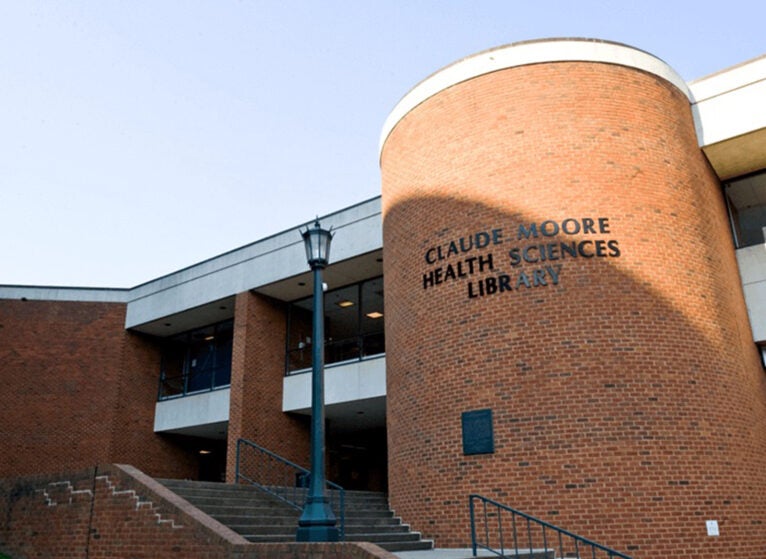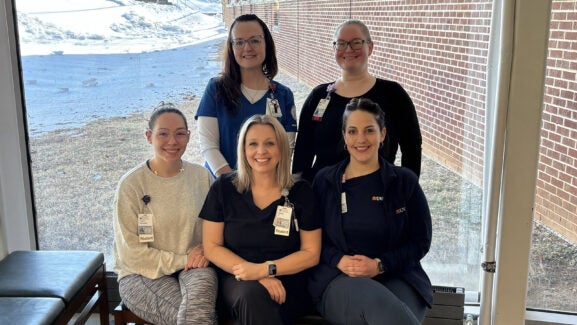

Libraries Empower Translational Science Hubs With Collaborative Resources and Expertise
Academic health sciences libraries play a pivotal role in advancing clinical and translational science, offering services that span the entire research lifecycle. As essential partners in the success of clinical and translational research, libraries have long collaborated with Clinical and Translational Science Award (CTSA) Program hubs, along with other translational initiatives such as the IDeA Clinical and Translational Research Network.
A recent article in the Journal of Clinical and Translational Science features contributions from 23 authors across various institutional libraries and geographies, and emphasizes the valuable role libraries can play in supporting Translational Science Hubs (TSH). The article highlights potential areas for collaboration, offering a comprehensive overview of how libraries can enhance the work of TSH by addressing the diverse information needs of researchers.
Vital Contributors
Drawing from the CTSA Program’s five functional areas as outlined in the Notice of Funding Opportunity, the article explores how libraries can actively support each of these areas. Libraries are equipped uniquely to provide essential services, resources, and expertise — positioning them as vital contributors to the success of TSH and the broader translational science ecosystem.
This work was led by Bart Ragon EdD, MLIS, Director of Strategic Development, Integrated Translational Health Research Institute of Virginia (iTHRIV) and Director, Claude Moore Health Sciences Library, UVA Health.
Ragon believes the article can serve as a powerful catalyst for new discussions across academic and healthcare institutions. “This work can be used as a strong foundation for TSH and libraries to explore how they can collaborate to foster translational science innovation and implementation, advancing the goals of the CTSA Program and other translational initiatives.”
Power of Collaborative Expertise
Anne Seymour, Associate Dean, Welch Medical Library, Johns Hopkins University and Medicine, reinforces this sentiment. "This paper can foster collaborations to more fully realize the potential of thriving learning health systems — where we continually learn from what we do,and do what we learn."
Kristi Holmes, Director, Informatics and Data Science for Northwestern University Clinical and Translational Sciences Institute (NUCATS), and Director, Galter Health Sciences Library and Learning Center, Feinberg School of Medicine, adds, “Our collaboration of over 20 library leaders exemplifies the power of collective expertise and a shared mission. Together, we’re breaking down silos, accelerating discovery, and ensuring knowledge serves its ultimate purpose — improving lives through science.”
Knowledge Into Action
Karen Johnston, MD, MSc, Associate Vice President for Clinical and Translational Research, UVA Health, and Co-director, iTHRIV, is a champion for strong library-CTSA collaboration: “Collaboration between translational researchers and librarians is a key tool to transform knowledge into action. Together, we accelerate the translation of research into practice, ensuring that vital insights research the diverse communities who need them most, ultimately improving health outcomes and fostering a healthier future for all. I am extremely grateful for the leadership of Dr. Ragon to facilitate these impactful partnerships.”
This perspective resonates strongly with Northwestern University, which positioned the health sciences library as a center within NUCATS more than a decade ago to facilitate important research, clinical, and education synergies on campus.
Bench to Bedside
Richard D’Aquilla, Associate Vice President of Research, Senior Associate Dean for Clinical and Translational Research, and Director, NUCATS, notes, "In translational medicine, the path from the bench to the bedside is only as strong as the knowledge networks supporting it. Our library partners play a pivotal role in facilitating access to the knowledge needed by researchers to foster innovation, collaboration, and evidence-based practice across disciplines."
With a shared commitment to improving patient care and enhancing the understanding of complex medical conditions, the collaboration between libraries and TSH promises to open new avenues for groundbreaking research and impactful scientific discoveries. The article provides a roadmap for TSH and libraries to deepen their collaboration, ensuring that researchers have access to the critical tools and information they need to drive innovation in clinical and translational science.
Latest News




